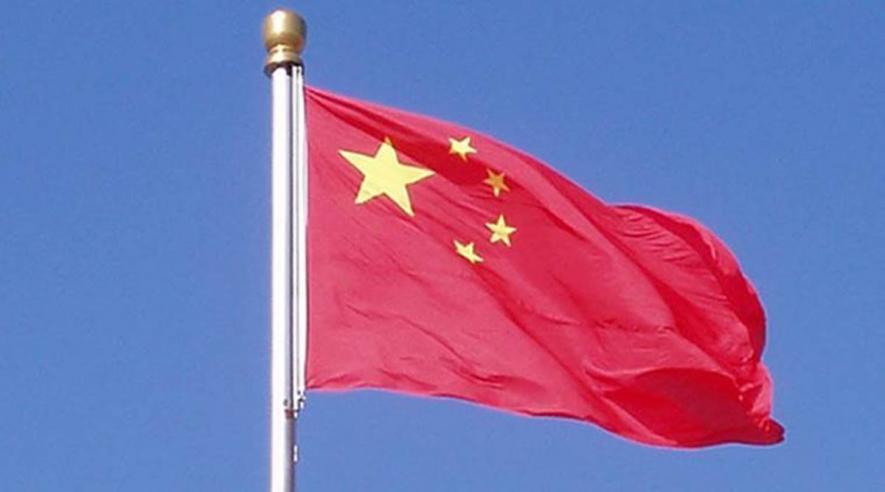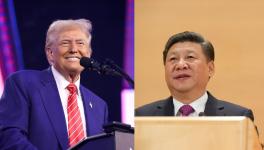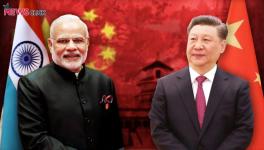China's Economy Grows by 8.1% in 2021, Seen as its ‘Best’ Amid Pandemic Challenges

Image Courtesy: The Indian Express
Beijing: China's economy grew by 8.1% in 2021 to about $18 trillion, stated to be the ‘best’ by the world's second largest economy in a decade, amidst challenges, including sporadic epidemic resurgences and a complicated external environment, the government said on Monday.
The country's GDP expanded 8.1% year-on-year to 114.37 trillion yuan (about $18 trillion) last year, the National Bureau of Statistics (NBS) said on Monday.
The pace was well above the government target of "above 6 per cent", and put the two-year average growth at 5.1% , the NBS data showed.
China's economy grew 8.1% year-on-year in 2021, despite sporadic epidemic resurgences and a complicated external environment, the official Xinhua news agency reported.
However, the NBS also announced that China's population grew to 1.41 billion by the end of last year, increasing by less than half-a-million as the birth rate fell for the fifth consecutive year, stoking fears of a looming demographic crisis and a consequent economic slowdown in the world's most populous nation.
At the end of 2021, China's population on the mainland grew to 1.4126 billion from 1.4120 billion in 2020, the NBS said.
China's population increased by 480,000 year-on-year, down from 12 million in 2020.
Experts have warned that a demographic turning point may be just around the corner in the world’s most populous nation, and some say it threatens to erode the foundation of China’s booming economic growth over the past 40 years, the Hong Kong-based South China Morning Post reported.
“The most shocking part of the data released today is that the natural growth of the population has dropped to 0.34 per thousand, the first time below 1.0 since data became available,” Zhang Zhiwei, chief economist at Pinpoint Asset Management said.
“The demographic challenge is well known, but the speed of population ageing is clearly faster than expected. This suggests China’s total population may have reached its peak in 2020. It also indicates China’s potential growth is likely slowing faster than expected,” he was quoted as saying by the Post.
As per the data from the 2020 census, the demographic crisis China faced was expected to deepen as the population above 60 years grew to 264 million, up by 18.7 per cent.
On the economic front, the official figures released by the NBS said China's economy grew by 4% in the fourth quarter of last year, slowing from the 4.9% growth in the third quarter, rounding off the full year's growth rate to 8.1% in 2021.
Before the 2021 economic figures were confirmed on Monday, the People's Bank of China also cut its two major policy rates by 10 basis points, further evidence of Beijing's intention to stabilise the growth in 2022.
The central bank sold 700 billion yuan ($110 billion) worth of one-year medium-term lending facility at 2.85% on Monday, compared to the previous rate of 2.95%, the Post report said.
The seven-day reverse repurchase rate, a major liquidity injection tool, was also lowered to 2.1% from 2.2%. It was the first such policy rate cut since April 2020, when China looked to offset the initial impact of the coronavirus.
Final consumption contributed 65.4% to the GDP expansion, while net exports contributed 20.9 %, NBS head Ning Jizhe said at a press conference.
"China's growth was among the fastest in major economies in the world last year," said Ning, adding that the country's GDP is estimated to account for more than 18% of the global total and contribute to some 25% of global GDP growth.
The per capita GDP of China reached around $12,500 in 2021, exceeding the global average, Ning said.
The country's job market showed signs of slowdown with the surveyed urban unemployment rate standing at 5.1% amounting to 12.69 million jobs last year, which is below the government target of "around 5.5 per cent".
Yue Su, principal economist at The Economist Intelligence Unit, told the Post that “despite the fact that fourth quarter GDP is slightly above expectation, China has reached a point when the government needs to reconsider its ‘dynamic zero Covid-19 policies’".
"This is because the stimulus policies that the government is adopting so far didn’t show enough effectiveness mainly due to the weaknesses in the private sector,” Yue said.
Get the latest reports & analysis with people's perspective on Protests, movements & deep analytical videos, discussions of the current affairs in your Telegram app. Subscribe to NewsClick's Telegram channel & get Real-Time updates on stories, as they get published on our website.
























